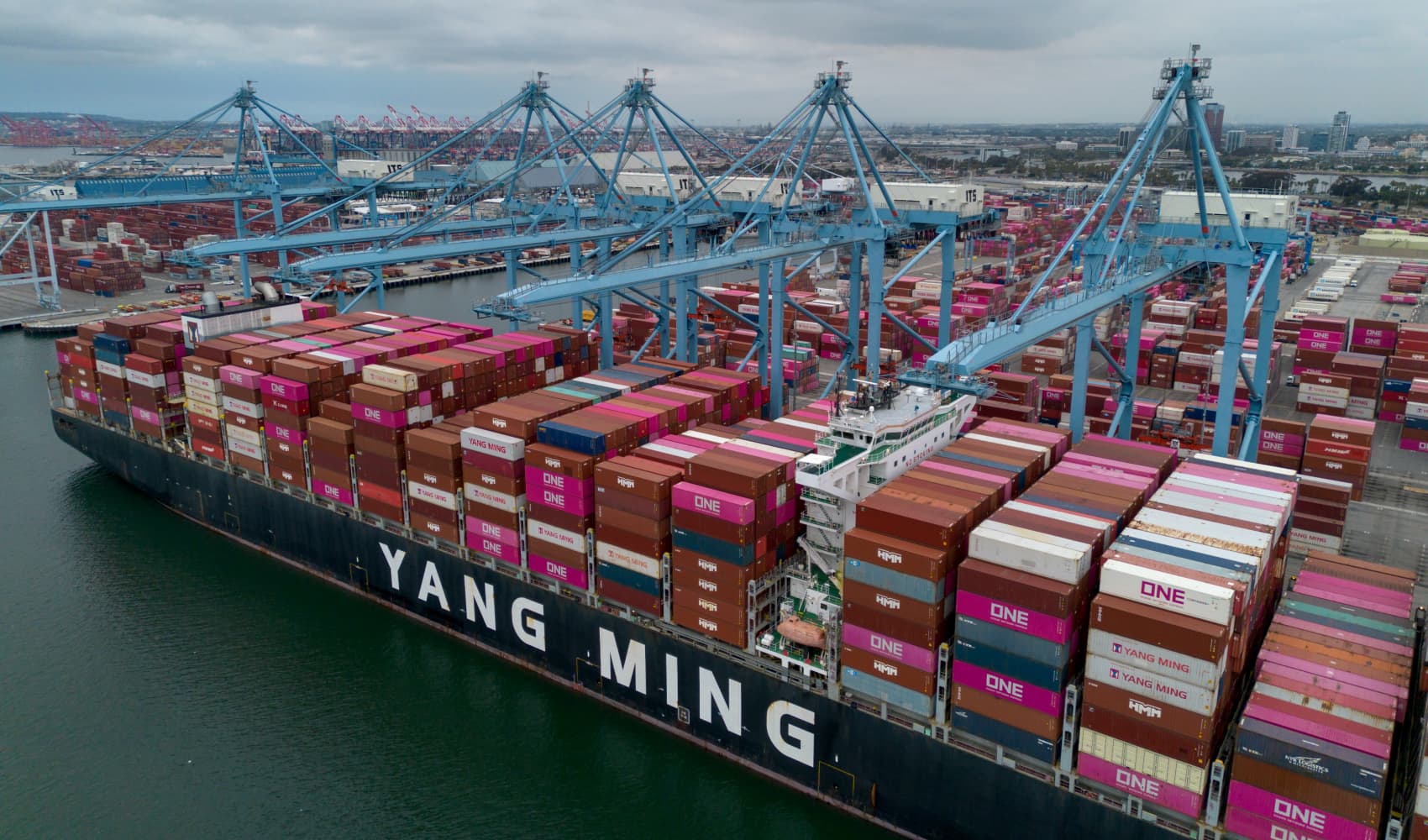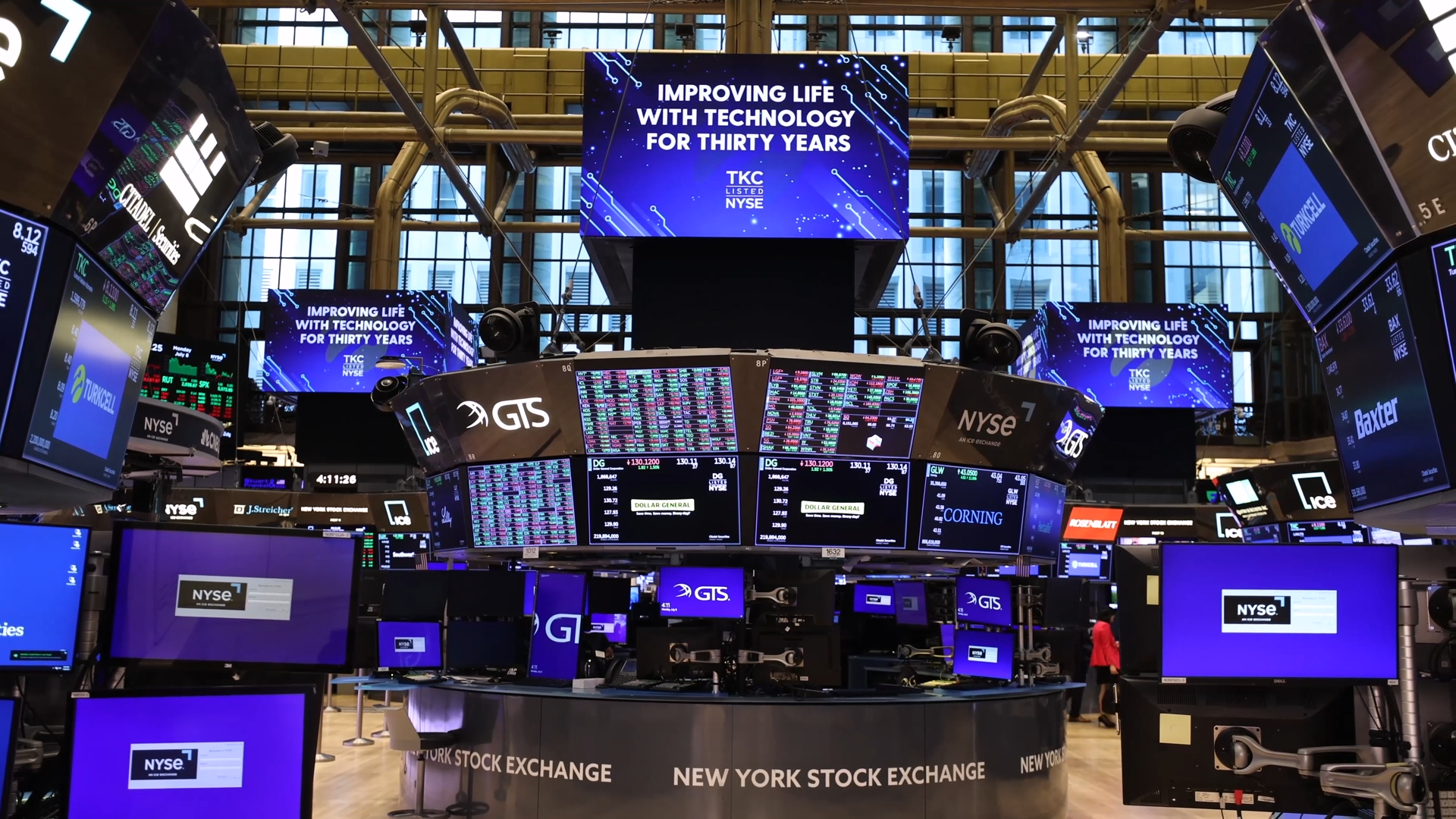European Stocks Soar: DAX & CAC Surge Over 2%!
European Markets Soar: DAX and CAC Lead the Charge!
Introduction: A Wave of Optimism Sweeps Across Europe
The European stock markets experienced a significant surge recently, fueled by positive economic data and encouraging geopolitical signals. Isn't it exciting to see markets react so strongly to positive news? The German DAX and the French CAC led the charge, both rising by more than 2%, signaling a strong investor confidence in the European economy. This blog post will dive deep into the factors driving this market rally and what it means for investors like you.
U.S. Payroll Data: A Shot in the Arm for European Markets
Better-Than-Expected Numbers
The catalyst for the European market rally was the release of surprisingly positive U.S. payroll data for April. The numbers exceeded expectations, indicating a robust American economy. But how does that affect Europe? A strong U.S. economy often translates to increased demand for European goods and services, boosting the earnings of European companies and driving up their stock prices. Think of it like a rising tide lifting all boats – a healthy U.S. economy helps lift the European economy as well.
Investor Sentiment and the Ripple Effect
Positive U.S. economic data also improved overall investor sentiment, making investors more willing to take risks and invest in European stocks. It's like a domino effect; positive news in one major market can trigger a chain reaction of optimism in other markets.
China's Overture: Trade Talks on the Horizon?
Easing Trade Tensions
Adding further fuel to the fire were signals from China suggesting a willingness to engage in trade negotiations with the U.S. Trade tensions between the world's two largest economies have been a major concern for investors globally. The prospect of a resolution to these trade disputes reduces uncertainty and fosters a more positive outlook for global trade, benefiting European companies that rely on international trade.
Geopolitical Impact
The potential for renewed trade talks also boosted investor confidence, reducing concerns about a potential global economic slowdown. It's like seeing the sun break through the clouds after a long period of rain – a welcome sign of hope and stability.
The Stoxx 600: A Broad-Based Rally
Industrials and Technology Leading the Way
The Stoxx 600 index, a broad measure of European stock performance, provisionally closed up 1.7%. The industrials and technology sectors were the star performers, both surging by more than 2%. This indicates that investors are particularly optimistic about the growth prospects of companies in these sectors. It's like betting on the fastest horses in the race – investors are backing the sectors they believe will deliver the highest returns.
Sectoral Analysis
Why industrials and technology? These sectors are often seen as leading indicators of economic growth. Increased industrial activity suggests a rise in production and investment, while a strong technology sector reflects innovation and future growth potential.
London's FTSE 100: Breaking Records
A Winning Streak for the Ages
London's FTSE 100 index also joined the party, rising 1.2% on Friday. What's even more impressive is that the FTSE 100 has gained more than 5% since the beginning of the year and set a new record for its longest ever run of daily gains. This is a testament to the resilience and strength of the UK economy, despite ongoing global uncertainties.
Factors Driving FTSE 100 Performance
The FTSE 100's strong performance can be attributed to a number of factors, including a weaker pound (which benefits companies that export goods), strong performance from commodity-related stocks, and positive sentiment towards the UK economy.
Eurozone Inflation: Holding Steady
No Dip as Expected
In currency markets, the euro held gains after a preliminary reading showed inflation in the euro zone held steady at 2.2% in April, despite economists forecasting a dip to 2.1%. This indicates that inflationary pressures in the Eurozone are remaining more resilient than anticipated. While higher inflation might concern some, it can also be a sign of a growing economy.
Implications for the European Central Bank
The steady inflation rate will likely influence the European Central Bank's (ECB) monetary policy decisions. Will they continue to hold interest rates steady, or will they consider further easing measures to stimulate the economy? This is a key question that investors will be closely watching.
The May 1st Holiday Effect
Market Closures
Many European markets were closed on Thursday for the May 1 holiday (Labor Day). This reduced trading volume and could have contributed to the choppiness of the markets on that day. It’s always important to remember the impact of holidays on trading activity!
FTSE 100's Resilience
Despite the holiday and reduced trading volume, London's FTSE 100 managed to end the session 0.02% higher, marking its 14th straight session in the green. This further underscores the index's remarkable performance and resilience.
Key Takeaways for Investors
Positive Signs for European Markets
The recent rally in European stock markets is a positive sign for investors, indicating growing confidence in the European economy. The combination of strong U.S. economic data, easing trade tensions, and resilient inflation are all contributing to this positive outlook.
Staying Informed and Making Smart Decisions
However, it's important to remember that markets can be volatile, and there are always risks involved in investing. Staying informed, doing your research, and making smart, well-informed decisions are crucial for success. After all, nobody wants to be caught out by sudden market changes!
Risk Factors to Consider
Geopolitical Uncertainty
Despite the positive signals, geopolitical risks remain a concern. Any escalation in trade tensions or unexpected political events could negatively impact market sentiment. It’s wise to keep a close eye on global events and assess their potential impact on your investments.
Economic Slowdown
While the U.S. economy appears to be strong, there are still concerns about a potential global economic slowdown. A significant downturn in the global economy could negatively impact European companies and their stock prices. Diversifying your portfolio can help mitigate this risk.
Looking Ahead: What's Next for European Markets?
Monitoring Economic Data
Investors will be closely monitoring upcoming economic data releases, including inflation figures, GDP growth rates, and unemployment numbers, to assess the health of the European economy. These data points will provide valuable insights into the future direction of the market.
Watching Central Bank Policy
The actions of the European Central Bank (ECB) will also be crucial. Investors will be paying close attention to the ECB's monetary policy decisions and any signals about future interest rate changes. These decisions can significantly impact market sentiment and investment flows.
Conclusion: A Moment of Optimism, But Proceed with Caution
Conclusion: A Moment of Optimism, But Proceed with Caution
The recent surge in European stock markets, driven by positive U.S. payroll data and encouraging trade signals from China, provides a moment of optimism. The DAX and CAC's impressive gains, coupled with the FTSE 100's record-breaking run, indicate a growing confidence in the European economy. However, geopolitical risks and the potential for an economic slowdown remain factors to watch. Staying informed, diversified, and cautious is always the best approach to navigate the ever-changing world of investing.
Frequently Asked Questions (FAQs)
1. What caused the European stock markets to rise recently?
The primary drivers were better-than-expected U.S. payroll data and positive signals from China about potential trade negotiations with the U.S.
2. Which sectors led the gains in the Stoxx 600 index?
The industrials and technology sectors were the top performers, both rising by more than 2%.
3. What is the significance of the FTSE 100's record-breaking run?
It demonstrates the resilience and strength of the UK economy, despite ongoing global uncertainties.
4. How does Eurozone inflation impact the markets?
The steady inflation rate influences the European Central Bank's monetary policy decisions, which can affect market sentiment and investment flows.
5. What are the main risk factors to consider when investing in European stocks?
Geopolitical uncertainty and the potential for a global economic slowdown are the primary risk factors to be aware of.

